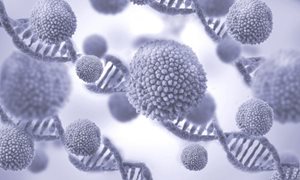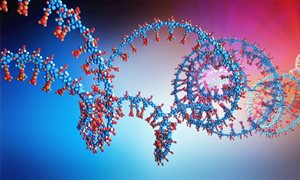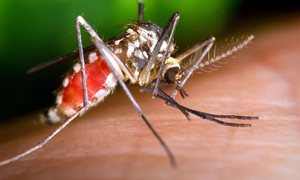13 April 2018
Website X-Omics: link
The National Roadmap for Large-Scale Research Facilities encourages setting up or improving large research facilities, enabling the Netherlands to take up an important position in the international research field.
The objective of the National Roadmap for Large-Scale Research Facilities is to invest in Dutch research facilities with an international reputation or in Dutch involvement in building or adapting international research facilities.
More information: link
 The Netherlands X-omics Initiative, led by Radboud university medical center, has received 17 million euros from the Netherlands Organisation for Scientific Research (NWO) as part of the National Roadmap for Large-Scale Research Facilities. The X-omics Initiative is one of ten projects awarded by Minister of Education, Culture and Science Ingrid van Engelshoven. A total of 138 million euros has been allocated to facilitate a large-scale research infrastructure in the Netherlands.
The Netherlands X-omics Initiative, led by Radboud university medical center, has received 17 million euros from the Netherlands Organisation for Scientific Research (NWO) as part of the National Roadmap for Large-Scale Research Facilities. The X-omics Initiative is one of ten projects awarded by Minister of Education, Culture and Science Ingrid van Engelshoven. A total of 138 million euros has been allocated to facilitate a large-scale research infrastructure in the Netherlands.
Cells in action
Coordinator Alain van Gool: “Our objective is to increase the technological possibilities of all these -omics techniques to a high extent. Also, the higher level of data integration will allow us to map the dynamics among the various -omics levels. As yet, analyses of genomics, proteomics and metabolomics are often separate approaches, hardly connecting with each other. With the X-omics Initiative we are now able to integrate all available data on all levels and to use these data for complex, dynamic analyses of the way in which cells and tissues function as a system. Our newly acquired knowledge of these molecular building blocks of life will allow us to see the contours of cells and tissues in action.”Demonstration projects
Combining and improving -omics techniques will contribute to more knowledge of the fundamentals of health and disease, for example regarding cancer, immunoreactions, unique rare diseases and the effect of genetic variations among the Dutch population. The Initiative will set up demonstration projects on various levels to illustrate the power of the -omics techniques in these fields. Hans Clevers and Rene Bernards will study cells and organoids for drugs to cure cancer and the development of resistance to these drugs. Mihai Netea and Han Brunner (both from Radboud university medical center) will study individual patients to look for individual differences regarding rare diseases, while Cornelia van Duijn (Erasmus University Medical Center) and Cisca Wijmenga (University Medical Center Groningen) will analyze population-based genetic variations among the Dutch population.National X-omics Infrastructure
Van Gool explicitly states that the X-omics Initiative is a national initiative: “The added value of this initiative lies to a large extent in the cooperation of the top institutes that are already involved in all these -omics parts and data integration. This is the only way to really make a giant leap forward. We have to make this effort together to achieve that, and we commit ourselves to taking the lead in this field worldwide.”Website X-Omics: link
The National Roadmap for Large-Scale Research Facilities encourages setting up or improving large research facilities, enabling the Netherlands to take up an important position in the international research field.
The objective of the National Roadmap for Large-Scale Research Facilities is to invest in Dutch research facilities with an international reputation or in Dutch involvement in building or adapting international research facilities.
More information: link
Related news items

Dutch-Nordic Alliance for Precision Cancer Medicine launched
26 November 2021 The Nordic countries (Denmark, Sweden, Norway, and Finland) are together setting up national clinical precision cancer trials modelled on the very successful DRUP trial in the Netherlands. read more
Large AI project receives over €95 million for ten years of public-private research
23 September 2021 The Dutch Research Council (NWO) is to fund two consortia for a period of ten years. Radboudumc participates in the ROBUST consortium, which consists of 17 AI labs, eight of which are dedicated to healthcare. Radboudumc leads five of these eight labs. read more
Nijmegen literally puts Digital Health on the map Flourishing ecosystem gets its own interactive overview
22 July 2021 Digital Health is thriving in the Nijmegen region, where it contributes to better care and health and also creates jobs. To bring developers and end users even closer together, The Economic Board and the Radboudumc are introducing the Interactive Digital Health map. read more
Next Generation cytogenetics is on its way Does Optical Genome Mapping turn cytogenetics upside down?
7 July 2021 Dutch-French research shows that Optical Genome Mapping (OGM) detects abnormalities in chromosomes and DNA very quickly, effectively and accurately. read more
